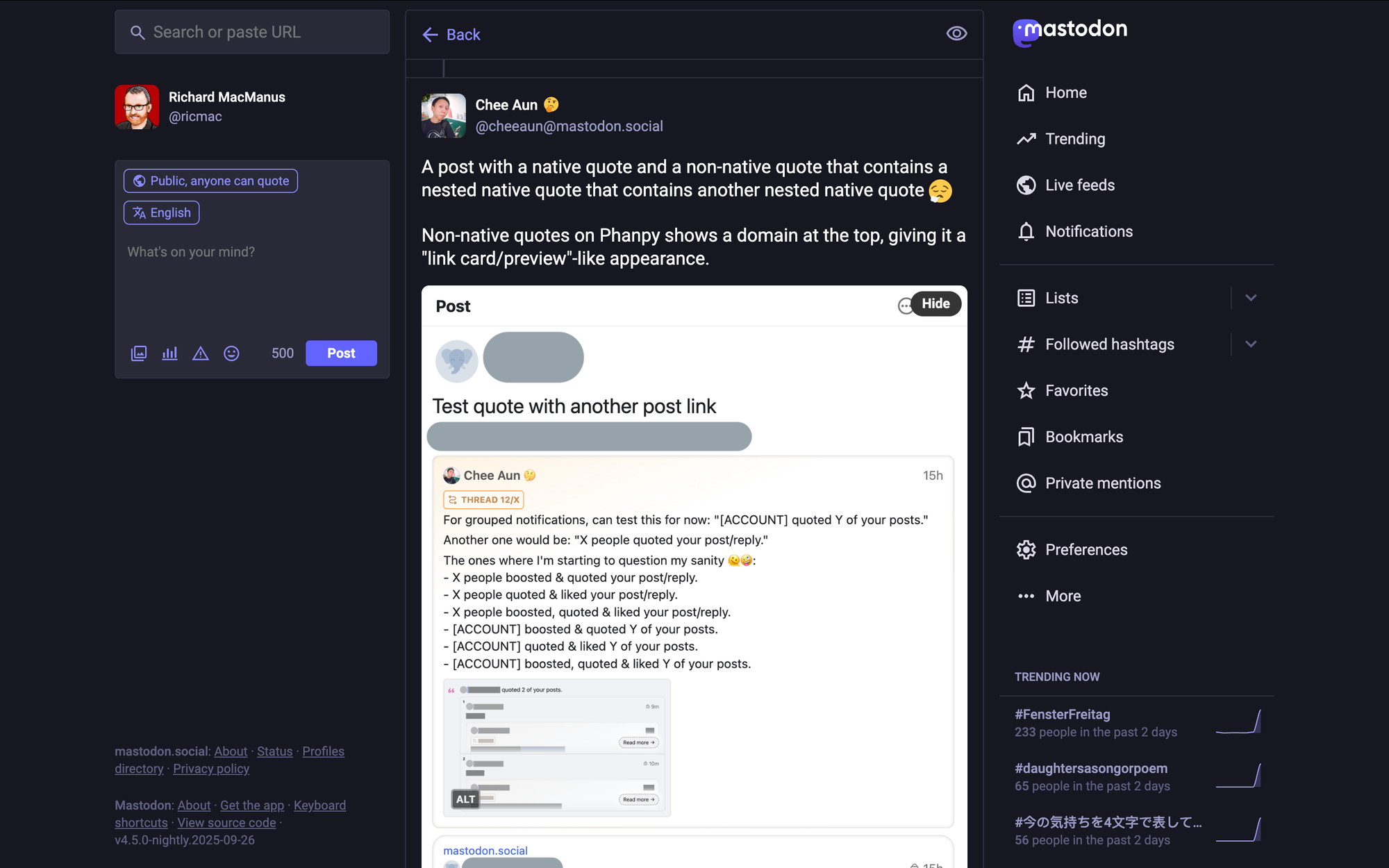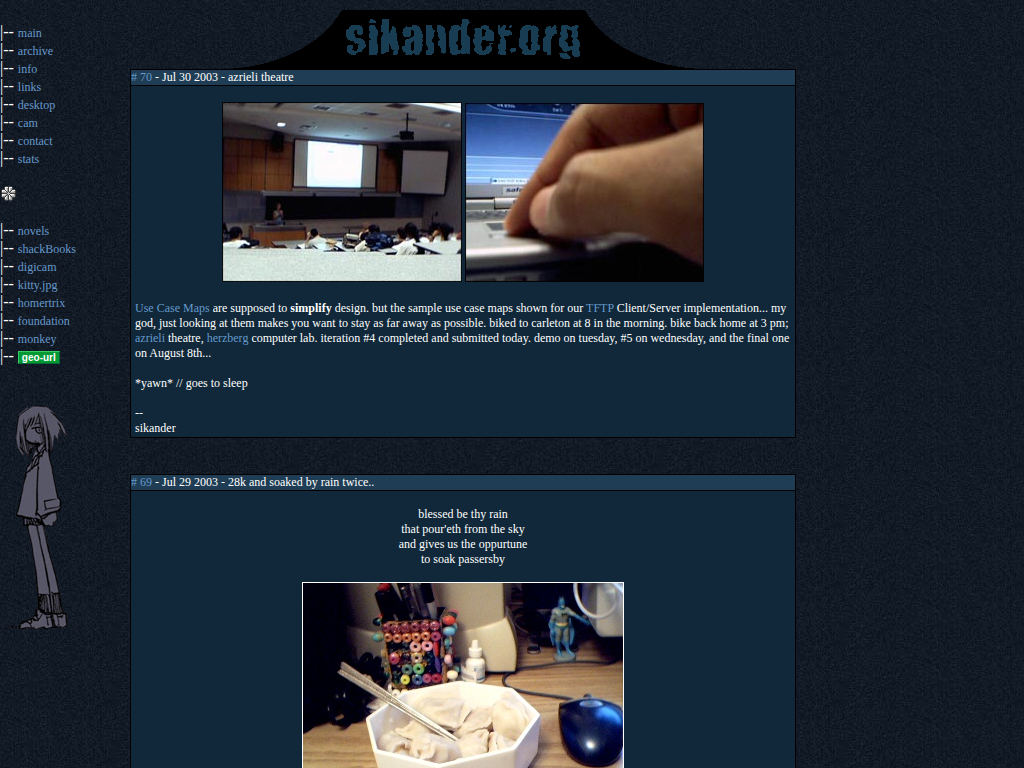WTN #8: The New Rock Stars of Web Development

I got to talk to one of the rock stars of frontend development this week. No, not DHH! I mean a young man named Evan You, whose Vite build tool is the backbone of many of the leading frontend frameworks of today: React, You's own Vue.js, SvelteKit, Astro, and others. As I discovered during our interview, this all happened within the space of five years. The version of Vite now used by other frameworks was first released in February 2021.
The other thing I love about Evan's story is that there is a big web standards angle to this. When he first began exploring an alternative to Webpack, the previous default build tool for frameworks, it was 2019 and a new JavaScript standard had just become widely available in browsers and on Node.js. As I explained on The New Stack:
"The key, it turned out, was a relatively new feature of JavaScript called ES Modules (ECMAScript Modules). ES Modules were standardized in 2015, as part of the sixth edition of ECMAScript (ES6). But it took until 2018 for it to be broadly supported in browsers and 2019 before Node.js support arrived."
Evan used ES Modules to create Vite. Interestingly, as an upcoming documentary by CultRepo will show (it's due for release on Oct. 9; I watched the screener), Astro creator Fred Schott also came up with an ES Modules based build tool around this time: Snowpack. In fact, Schott was first to launch. But ultimately Vite won out — and Schott himself uses it for Astro now.
I don't know how old Evan You is, but he's much younger than me (and DHH). He's one of a new generation of web development heroes, who has built an incredible resource for today's web devs on top of a web standard.
Onto the rest of the web tech news of the week...
Web Platform
🌐 In not-so-positive web development news, there's been a ruckus in the Ruby community this week. According to the Techmeme summary, "Ruby Central recently took over a collection of open source projects from their maintainers without their consent." For more context, check out Jared White's blog post.
🌐 Cloudflare has announced it is providing financial support to Ladybird, a relatively new indie browser. The main reason seems to be that Ladybird is not Chromium-based; Cloudflare argues that the world needs more browser diversity, given that 65% of users on the Internet run a Chromium-based browser.
🌐 Cloudflare also announced it will sponsor "two cornerstone frameworks in the modern web ecosystem: Astro and TanStack." It's doing this in association with Webflow (Astro) and Netlify (TanStack). On the Astro sponsorship, I thought it was interesting that Cloudflare highlighted two web dev issues I've been writing a lot about: JavaScript overuse, and the performance problems of React. Here's how Cloudflare put it:
"We chose Astro because its core principles mirror our own. Its "zero JS by default" architecture delivers the raw performance and stellar SEO that a content-heavy site demands, ensuring our docs are fast and discoverable. Just as importantly, Astro is framework-agnostic, letting teams use components from React, Vue, or Svelte without vendor lock-in."
🌐 Developer Ibrahim Diallo makes a great comparison in response to the news that Chrome is now an AI browser:
"It's a TikTokification of the web. On TikTok, you don't choose what to watch; the algorithm serves you what it believes you should consume next. When Chrome browses for me, it will surface what it wants me to see, filtered through corporate priorities, advertising relationships, and engagement metrics."
Open Social Web
🦋 Rose from the Bluesky team points to a TikTok for the AT Protocol, called Skylight Social:
"TikTok’s US operations are changing hands and will be retraining the algo on US-only data. No word yet on whether a new app is needed. Meanwhile, @skylight.social — the TikTok of the atmosphere — is seeing massive growth this week."

🦣 Meanwhile, Mastodon app developers are coming to grips with the new quote posts. I use Phanpy for my Mastodon browser app (it's awesome), and here is creator Chee Aun testing the new feature:

🦣 btw, if you're wondering how to get started on the fediverse, check out Elena Rossini's Fediverse Starter Guide. Great resource if you're looking to escape the hell pits of X and Facebook (or you've been tricked into thinking Threads is the answer!).
✍️ Here's another useful resource, this time for aspiring bloggers / newsletter writers: No-Code Website Builders Compared: From Landing Pages to Ecommerce by Sia Karamalegos
Web + AI
As usual now, tons of Web + AI news this week...
🤖 Google's Chrome team announced a public preview of Chrome DevTools MCP. On Bluesky the team noted:
"With Chrome DevTools MCP, your AI agent can run performance traces, inspect the DOM, & perform real-time debugging of your web pages."
🤖 Google also launched the Data Commons Model Context Protocol (MCP) Server. My colleague at The New Stack, Frederic Lardinois, described it as "an MCP server to give AI agents access to its vast trove of public datasets."
🤖 Cloudflare has been busy on its 15th birthday. It announced a private beta of AI Index, "for domains on Cloudflare, a new type of web index that gives content creators the tools to make their data discoverable by AI, and gives AI builders access to better data for fair compensation."
🤖 Yet more Cloudflare news: it also announced "NET Dollar, a new U.S. dollar-backed stablecoin that will enable instant, secure transactions for the agentic web." It's described as being "programmable and can settle in near real-time across the global market."

🤖 There are many AI coding tools out there now, but when this pitch came into my inbox at The New Stack, I couldn't resist: what if the former head of TikTok's algorithms created one of these tools? My interview with Verdent CEO Zhijie Chen showed that he wants to change the game in AI coding too, just as he did with social media algorithms:
“What we need is not ‘human tools translated for AI,’ but purpose-built, AI-native infrastructure designed for hyper-speed software creation and iteration.”
🤖 Notion, the trendy note-taking app, has announced Notion 3.0 — "the biggest evolution of Notion yet, with Notion AI Agents at the center." The startup urges its users to "think of your Agent as a Notion power user that can handle entire workflows and access all the information you can." Note: there's a Hacker News thread about security concerns.
🤖 Matt Mullenweg lists MCP implementations in the WordPress ecosystem.
🤖 CMS expert Deane Barker wrestles with a question: "how much power should AI have over your CMS repository?"
One More Thing
🎈 Remember when writing personal journals was how we used blogging tools in the early 2000s? My alt Mastodon a/c, Classic Web (also available on Bluesky, via Bridgy Fed), is currently showcasing some early blogs from 2000-2005. So if you're looking for design or blogging inspiration, do check it out.

Thanks for reading Web Technology News (WTN), my weekly newsletter tracking what's next on the web. I'm still in the early phase of this project, so please share the newsletter on your favorite social media platform — I'd love to eventually make this into a thriving community of webheads.
You can get the full content of WTN via email (the form is on the WTN homepage) or RSS. A benefit of signing up via email is that it allows you to post comments on the URL where this post lives: i.e. on the Web.
You can also follow WTN on social media: search "@feed@webtechnology.news" on Mastodon or click here to follow on Bluesky.
Until next week, keep on blogging!



